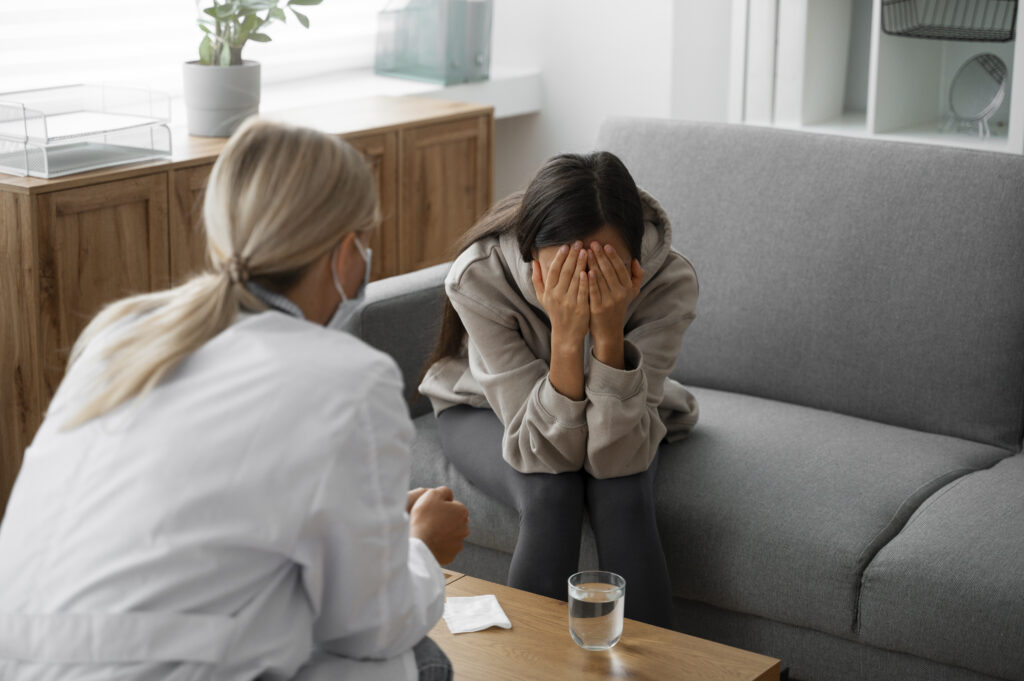Painful intercourse treatment, often known as dyspareunia, is a condition that may be both frustrating and lonely. This condition may afflict women of any age, and it has the potential to have a significant impact on both your sexual life and your overall health. To our good fortune, there are a wide variety of effective treatment options available. In the following paragraphs, we will discuss the causes of dyspareunia as well as the several treatment choices that you and your physician may take into consideration.

The Factors That Contribute to Painful Intercourse Treatment:
Some mental and physiological factors might contribute to unpleasant sexual encounters. The following is a list of frequently committed offenses:
Due to the decrease in oestrogen levels that occurs throughout the postpartum and menopausal periods, vaginal dryness is a frequent complaint that women experience.
The most fundamental health concerns are:
Sexually transmitted infections (STIs), yeast infections, and vaginitis are a few illnesses that may cause these symptoms. Several conditions may cause pain, including endometriosis, uterine fibroids, and pelvic inflammatory disease (PID).
Tense muscles:
Problems with the muscles that make up the pelvic floor, such as vaginismus (involuntary muscular spasms), may be a contributing factor to the pain that is experienced during sexual activity.
Several psychological conditions may hurt sexual function and produce discomfort. These conditions can also be a source of pain. Stress, anxiety, depression, previous sexual trauma, and concerns about one’s body image are some of the factors that fall into this category.

Finding the Treatment That Is Most Appropriate for You:
The underlying cause of painful intercourse treatment determines the most effective treatment method. Several different therapy approaches are outlined in this article:
Alterations to one’s way of life:
Even little adjustments here and there might have a substantial influence on one’s living situation. Some of the things that might be helpful include taking warm baths before engaging in sexual activity, using water-based lubricants, and maintaining a high level of hygiene.
To treat the underlying reasons, your physician would most likely prescribe medication to reduce the symptoms of the sickness in the case that an infection is the underlying cause. It is possible to get a prescription for oestrogen-containing creams, tablets, or rings to address hormonal irregularities.
Physical therapy for the pelvic floor:
A physical therapist who specializes in pelvic floor problems may be able to help reduce tension and stiffness in the muscles of the pelvic floor, therefore enhancing the range of motion and reducing discomfort experienced mostly during sexual activity.
Lubricants consisting of water or silicone might significantly reduce the amount of friction and discomfort experienced during sexual activity. By experimenting with various options, you can determine which one works best for you.
Ibuprofen and other pain medications that are available without a prescription may be used before participating in sexual activity to provide temporary relief from the discomfort that would otherwise be experienced. Discuss this option with your primary care physician.
Therapeutic sexual work:
If you are having trouble working through the mental and emotional difficulties that may be increasing your painful intercourse treatment, talking to a sex therapist may be able to assist you. Their counsel may be beneficial to both you and your partner in terms of learning how to relax, improving your ability to communicate, and finding sexual practices that are more fulfilling.
Taking Personal Responsibility for Your Sexual Health and Well-Being:
Keep the following piece of advice in mind as you strive towards the aim of having sexual encounters that involve painful intercourse treatment:
You should be open and honest with your partner about your feelings and communicate this to them. Investigate the many approaches that might make having sexual encounters less difficult and more enjoyable for both you and your partner.
Have patience, since it could take some time until you locate the best medication for you. Reward yourself for the little things that you accomplish, and take it easy on both your body and your mind.
Conclusion:

Urge yourself to seek the guidance of a physician or therapist who specializes in sexual health concerns as soon as possible for painful intercourse treatment. They can direct you in the right direction if you are interested in enhancing your sexual life.
It is important to keep in mind that nobody is standing alone. Although a lot of individuals have to cope with unpleasant sexual encounters, there are treatments available. After determining the factors that are contributing to your sexual dysfunction, you should consult with your physician about the many treatment options available to you.

